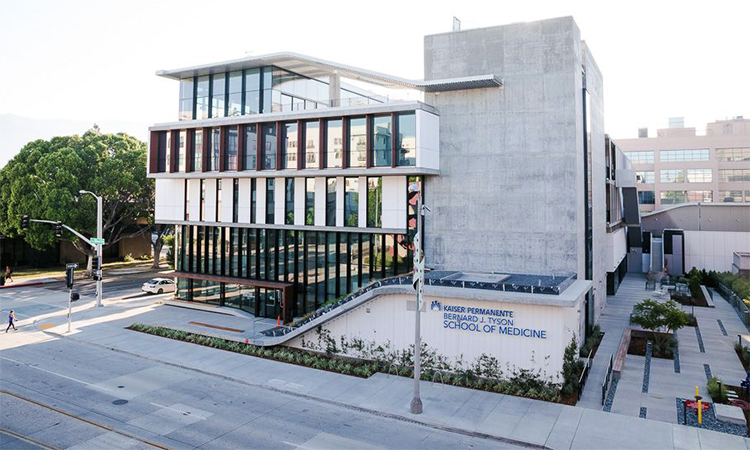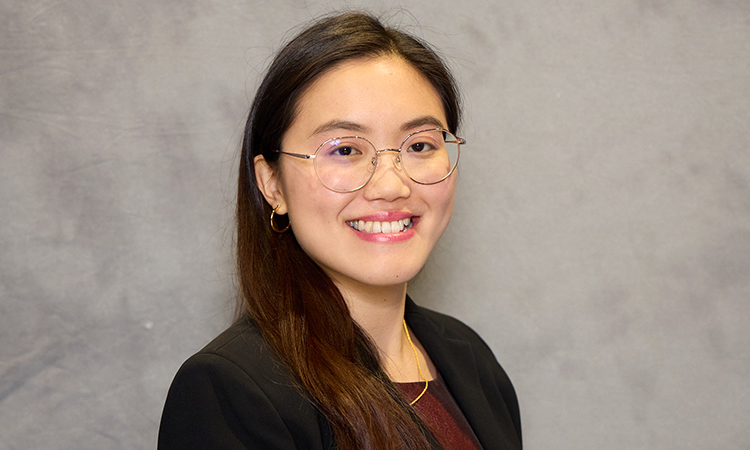The inaugural class of the Kaiser Permanente Bernard J. Tyson School of Medicine participated in the first session of the school’s singular REACH course (Reflection, Education, Assessment, Coaching, and Health and well-being) on October 12 through October 16. The program was developed to provide students with an opportunity to build resiliency and problem-solving skills that will serve them and their patients well in the future.
Medical student burnout, depression, and suicidality continue to be major issues within medical education. A recent report by the Mayo Clinic found that clinician burnout affects 45 to 60 percent of medical students and residents. The problem doesn’t stop there, of course, reflected in the 35 to 54 percent of nurses and physicians who reported the same issue. Clinician burnout, which is a syndrome characterized by a high degree of emotional exhaustion, cynicism, and a low sense of personal accomplishment at work, can have serious, systemwide consequences. These range from reduced job performance, high turnover rates, medical errors, to clinician substance abuse and suicide.
Citing findings from the National Academy of Medicine’s Action Collaborative on Clinician Well-Being and Resilience, Dr. Anne Eacker, senior associate dean for student affairs and KPSOM associate professor, said 80 percent of physician burnout is thought to be due to system factors. This led KPSOM to create a program that teaches students more than just well-being tips.
“REACH covers a lot of additional content in addition to health and well-being, including threads focused on equity, inclusion, and diversity, and advocacy and leadership, which will help our students learn how to advocate not only for the health and well-being of patients, families and communities, but also for those who provide healthcare,” said Eacker. “Inequities in healthcare delivery can result in moral distress for physicians, so it makes sense that these skills belong in a course teaching about well-being.”
REACH is part of KPSOM’s integrated approach to medical education. The program, created jointly by the school’s Office of Medical Education and Office of Student Affairs, focuses on providing an environment where students can thrive and learn from their mistakes as well as their successes.
The course utilizes a positive psychology approach to help students reframe their experiences when possible, challenge their fixed beliefs to develop a growth mindset, identify and capitalize on their strengths, and enhance their resiliency skills that will serve them in both their professional and personal lives. Eacker said only two or three other medical schools utilize this affirming approach.
Knowing that overloaded students might not take the time they need to tend to their own well-being, KPSOM also made the course a mandatory requirement. Doing so further underscores the school’s aim to support students in becoming change agents who will improve the health and well-being of their patients and communities by starting with themselves.
The five-module learning series, which takes place every quarter in one-week blocks, as well as on some Monday afternoons, pairs each student with a physician-coach who works with them until graduation. KPSOM coaches were drawn from a diverse pool of physicians from the Southern California Permanente Medical Group (SCPMG) who have received certified coach training through the International Coaching Federation (ICF). They also receive ongoing coaching supervision.
“REACH is meant to be both restorative and challenging,” said Juan-Carlos Zuberbuhler, MD, MEd, Psychiatry, West Los Angeles, REACH Phase 1 and 2 course director and KPSOM assistant professor. “They are reflecting on system barriers to their own health and well-being. It may be humbling to focus on changing yourself, your own habits, and your own resiliency skills. By doing so, you can start to appreciate how complex it is to make system changes.”
In addition to Dr. Zuberbuhler, coaches include Lori Chow, MD, General Surgery, San Bernardino; Kent Miyamoto, MD, Urology, San Bernardino; Lisa Montes, MD, Pediatrics, South Bay; Sharon Okonkwo-Holmes, MD, Family Medicine, Panorama City; Brian-Linh Nguyen, MD, MBA, MTOM, Pediatrics, South Bay; Randall Ryan, MD, Orthopedics, Woodland Hills; Linda Tolbert, MD, JD, MPH, EdD, Dermatology, San Bernardino; and Roland Tang, MD, Pediatrics, Panorama City.
Daniel Berg, curriculum coordinator, contributed to the REACH week, with Deepthiman Gowda, MD, MPH, MS, assistant dean for medical education and KPSOM associate professor, teaching sessions in Narrative Medicine. The discipline uses creative works as a vehicle for students to reflect deeply on their medical school experience and help them foster humility for themselves and others.
It was not all (internal) work and no play, as students were also able to participate in activities such as exercise sessions developed by Andrew Gallardo, fitness director for Kaiser Permanente Southern California. While some of the offerings had to be done on Zoom rather than in-person due to COVID-19, students enjoyed the chance to recharge after their first round of medical school finals.
“I didn’t really know what to expect, but REACH week for me was a fantastic way to decompress after a challenging week of finals, as well as a great introduction to practices of self-care, well-being, and presence within oneself and toward others,” said KPSOM medical student Michael Najem.
Others singled out the opportunity to bond with classmates outside of the rigors of the classroom environment.
“I want to say that it was like a vacation, but it felt better than just taking a whole week off,” said KPSOM Class President Samir Fierro. “I got to walk around town with my classmates, learn about them and the community that we are all living in, as well as what they want for their own wellness.”



